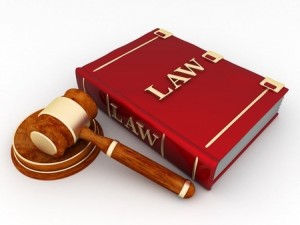
Losing a loved one is always painful, but the loss of a loved one as a result of negligence can be particularly difficult. Not only are you grieving from the loss, but you may also be confused about your legal rights and unsure of what to do next. The Chicago wrongful death lawyers at Steinberg, Goodman & Kalish focus on helping family members deal with the legal aftermath of an untimely death caused by negligence, and in this article we attempt to answer some of the most common questions family members have about wrongful death lawsuits. What Is a Wrongful Death Lawsuit? A wrongful death lawsuit is a type of personal injury lawsuit and requires that the plaintiff prove the following:
- The plaintiff’s loved one died;
- The death was caused by the defendant’s negligence;
- The plaintiff suffered a loss as a result of the death, and;
- The plaintiff has a legal right to recover as a surviving family member or other person specifically named in the applicable wrongful death statute.
Wrongful death lawsuits can involve any type of fatal accident, but they often involve trucking accidents, auto accidents, medical errors, construction accidents, defective products, and other personal injury accidents. Who Can File a Wrongful Death Lawsuit? A wrongful death lawsuit can be filed by the personal representative of the deceased person’s estate, including spouse of the deceased, a parent of a deceased minor child, or adult child of the deceased. When Does the Case Need to Be Filed? Under Illinois law, the statute of limitations in a wrongful death case is generally two years of the date of death. What Can a Plaintiff Recover? If liability is assessed against the defendant, the court will then consider the amount of wrongful death damages to award, which may include:
- Medical expenses incurred prior to death
- Funeral expenses
- Loss of future income and benefits
- Loss of future inheritance
- Loss of parental guidance
- Loss of spousal companionship
- Mental pain and suffering of loved ones
- Pain and suffering of decedent prior to death
- Punitive damages
What Should I Do If I Think I Have a Wrongful Death Claim? If you lost a loved one do to the negligence of someone else, it is important to act quickly. Not only do you need to collect and maintain evidence to support a claim, but a wrongful death lawsuit needs to be filed within the applicable statute of limitations. The accident and injury lawyers at Steinberg, Goodman & Kalish are dedicated to helping clients in and around Chicago deal with the aftermath of a personal injury accident, including personal injury accidents that result in a premature death. We are committed to protecting the rights of personal injury victims and their families, and helping clients obtain maximum financial recovery. Contact the Chicago accident lawyers at Steinberg, Goodman & Kalish at (312) 445-9084 to schedule a free consultation to discuss a possible wrongful death lawsuit. Steinberg Goodman & Kalish (www.sgklawyers.com) is dedicated to protecting victims and their families. We handle medical malpractice, product liability, personal injury, wrongful death, auto accidents, professional negligence, birth trauma, and railroad law matters. Contact us at (888) 325-7299 or (312) 445-9084.

